Network Initiatives
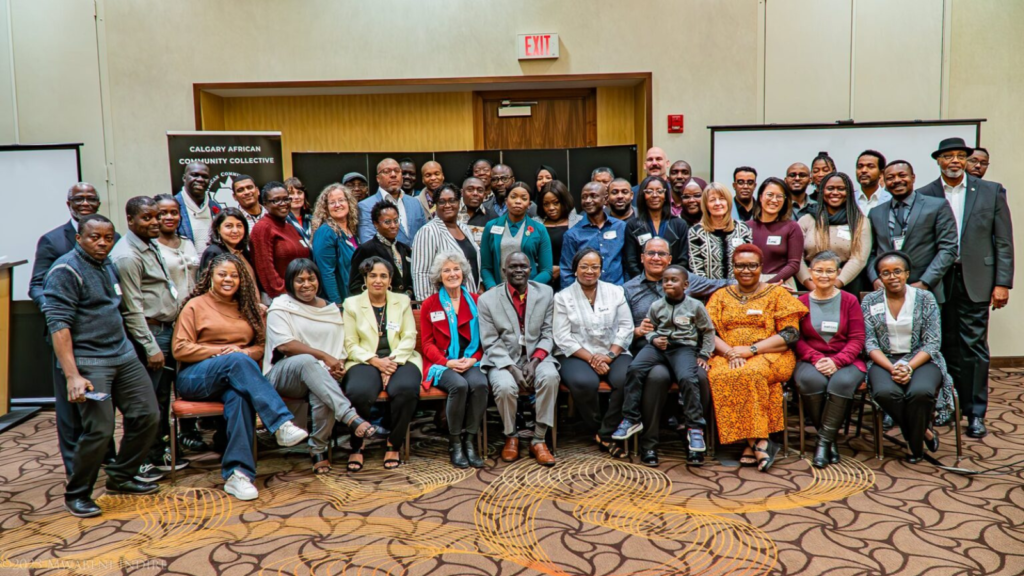
SEEDING – GROWING – SUSTAINING FOR LONG TERM CHANGE
The challenges that Black communities face are too complex to tackle as individual persons or organizations. Challenges such as education, health, employment, housing and other systems are complex, generational and systemic in nature. Tackling these challenges requires collective thinking and wisdom of the village to find collective approaches and solutions that ensure positive outcomes for Black communities across the social development landscape.
PAN-CANADIAN SYSTEM TRANSFORMATION NETWORK
NABC, together with its allies, supports the establishment of collaborative networks in cities across Canada consisting of B3 organizations under one umbrella, with the common purpose of seeking long term solutions to our collective challenges, and creating the conditions for change. The culmination of these city collaboratives networks is envisioned to be a Pan-Canadian Systems Transformation Network that will be a national network for learning, knowledge exchange and sharing on addressing social challenges through a systemic lens.
OPPORTUNITIES FOR CHANGE
An alternative way: Working as collaboratives across diverse stakeholders in the B3 sector presents an opportunity to speak with a collective voice, creating platforms for knowledge exchange, learning and growth. There is value in being bold enough to try new/different ways particularly when those we have tried in the past have not yielded the desired outcomes.
Drawing from African ways of knowing: Traditions and practice stemming from the African continent can play a crucial role in guiding the work of collectives. These include the understanding that when we work together, using our collective experience, knowledge and resource, we are better positioned to overcome our challenges – the knowledge and wisdom of the village, not only the individual.
Changing mindsets: Our understanding determines our orientation and ultimately our approach to how we seek to solve our challenges. This approach presents an opportunity to change the way stakeholders engage with each other in efforts to improve the conditions in Black communities. These include the relationship between B3 organizations and funders. There is value investing in collaboratives and partnerships that seek to drive change as opposed to only individual efforts.
A Coordinated and more United B3 sector: Through the city collaboratives which represents various B3 organizations, but working towards specific goals, this work could play a critical role in taking what is largely a fragmented B3 sector, to one that is united by its common purpose and recognizing collaboration as a key strategy to bring about meaningful change.
Building momentum moving forward: The network of city collaboratives across Canada that seek systemic change culminates into a Pan-Canadian Network that provides a space for learning, exchange and sharing. Thus, bringing together the rich experiences in their collective endeavors for systemic change.
CURRENT PROGRESS
NABC is currently supporting system transformation collaboratives in two cities:
- Calgary African Community Collective (Calgary) – Partner: Calgary Foundation, Focal Area: Poverty Alleviation.
- African Canadian Collective (Toronto) – Partner: McConnell Foundation, Focal Area: African Refugees and Asylum Seekers.
These initiatives are currently at different stages of implementation with NABC playing a role as advisory partner to the CACC initiative and implementing partner to the ACC initiative. The intention is that this approach is sufficiently documented considering best practice and lessons learned, with a view of replication in other cities across Canada.
CONTACT
For more information, please reach out by emailing Allan Boesak at [email protected], Director, Youth, African Diaspora and Continental Engagement.


BACKGROUND
Systemic racism and discriminatory practices have created significant barriers to safe, affordable, and equitable housing for Black people, and addressing this requires intentional engagements and collaborative solutions. Racialized communities, and Black people specifically, have not been provided the same degree of opportunity and support as more dominant cultures in our society. Housing is no exception, despite the fact that Black people are overrepresented among the tenants of social housing. Some of the existing challenges that present barriers to advancing Black community housing include:
- Little access to knowledge and information
- No strategy that informs the needs of Black communities
- Lack of race-based data within Canadian housing institutions
- Lack of multi-stakeholder partnerships and collaborations
- Communication and outreach gaps with Black communities
- Lack of innovative approaches to affordable housing
RESPONSE
To ensure that Black communities and Black-led organizations have the support needed to create improved housing outcomes for Black communities, the Canadian Housing and Mortgage Corporation and the Government of Nova Scotia have allocated resources towards the establishment of a Black Community Housing Technical Housing Resource Centre (BCHC). The BCHC will support Black-led organizations across Canada to create improved housing outcomes for Black communities, building much needed capacity in project planning, development, and management. It will support Black-led community organizations in accessing government housing programs and investment opportunities by providing tailored support, counselling, and expertise. The BCHC will be incubated by the Network for the Advancement of Black Communities (NABC) through a community-driven approach aiming to increase the organizational capacity of existing and upcoming Black community housing providers and Black community organizations.
PURPOSE
The BCHC will offer expert services to Black communities and organizations interested in creating top-quality business case proposals to access National Housing Strategy (NHS) funding, in addition to provincial and municipal funding streams. The BCHC’s long-term goal is to significantly contribute to creating a sizable and diverse offer of quality and affordable Black community housing stock wherever demand for such service justifies its existence. This would be characterized by a governance structure ensuring its ability to develop, manage and maintain itself and actively contribute to the general community housing sector across Canada.
CONTACT
For more information, please reach out by emailing RaeChelle-Faith Ankamreddy at [email protected], Senior Government Relations and Policy Analyst.
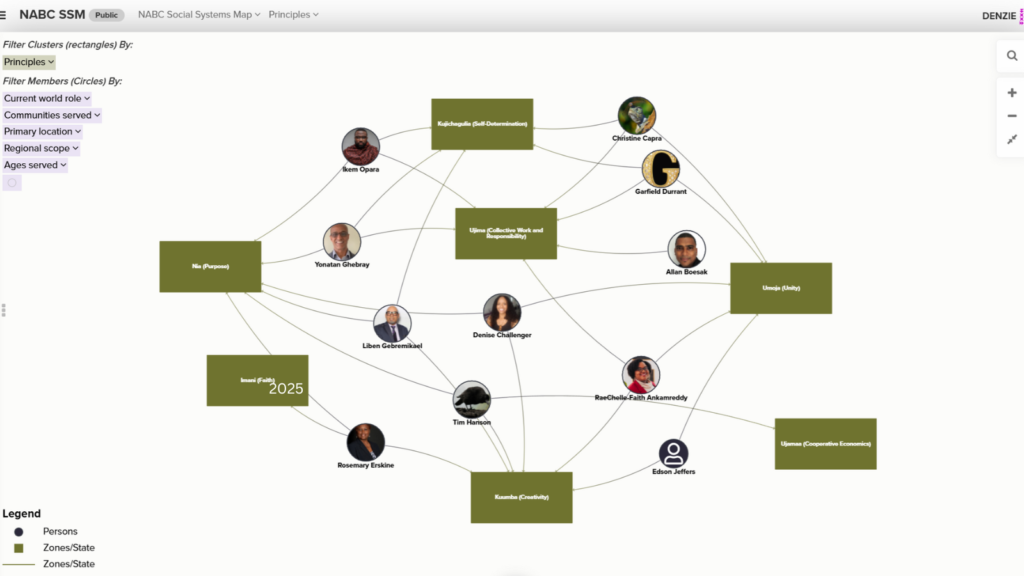
HOW THE MAP WAS DEVELOPED
In the summer of 2023, NABC sought community members interested in
exploring how social system mapping can improve the health of the network – meaning how Black led, serving and mandated (B3) organizations relate to
and collaborate with one another. Community leaders Garfield Durrant, Liben Gebremikael, Ikem Opara, and Edson Jeffers, showed interest and had the capacity to volunteer for this pilot project. Over the course of two months, the group met regularly over Zoom along with NABC staff to develop the structure, questions and purpose of the map as documented on this Miro board. The sessions were held in consultation with Christine Capra, who developed
SumApp, the software that collects the data that the Kumu platform will visualize. Ben Roberts, a network weaver with whom Denise Challenger worked to develop the Weaving Lab map, also provided inspiration for the map design.
PURPOSE OF THE MAP
The map is designed to visualize the relational tissue of the network. We believe mapping individuals and their interrelations will improve collaboration, encourage new relationships, and enhance knowledge sharing within the Black ecosystem.
Grasping how the network interacts will enable people to make informed decisions about whom to approach to discuss ideas, programs, projects, and initiatives. Self-organizing in this fashion is one path to making transformative changes within the Black ecosystem.
This map is intended neither to replace nor function as a social media platform. Rather it’s a way to understand the degree of connectivity within the network. Showing the health of the entire network – how well people relate to one another – rather than individual accomplishments is a foundational aspect of the map.
MAP PHILOSOPHY | UBUNTU
Ubuntu as an overarching philosophy to Social System Mapping. The success of the NABC Social System Map is largely dependent on the connectedness and interaction of its members. As isolated individuals, and without the recognition of other members, Social System Mapping will not function optimally and fail to reach its ultimate purpose. This aligns well with Ubuntu, the African philosophy that recognizes that we are, because of others, I am because you are. It emphasizes the interdependence of people on one another and the acknowledgement of our fellow human beings. The Ubuntu philosophy values that we are only human through relationships with others (Tutu, 2013) and recognizes that in order for us to optimally function/succeed/thrive, we need to recognize, acknowledge, and interact with each other.
WHO IS THE MAP FOR?
While designed with Black serving, Black-led and Black mandated (B3) non-profit organizations and grassroots groups in mind, the map is open to others in the Black ecosystem, including faith-based institutions, funders, business owners, philanthropists, civil servants, policy makers and academics.
The map centres Afrocentric values and principles, but is not exclusive to people of African descent or Black people. We value the input, knowledge and resources of all who are committed to elevating the mission and goals of the map and seeking to make stronger ties with those in the Black ecosystem.
MAPPING AS A LEARNING OPPORTUNITY
The map is iterative. We will hold regular “sensemaking” or map analysis sessions with members to collectively read the data. From which we’ll test out new questions and build new views so that we can see our network in different ways. New members will also continue to add themselves to the map. For those reasons, we’ll ask you to return to sumApp frequently to update your information.
A social system map such as this one collects information that allows a network to understand itself in innovative ways. It provides fresh insights into how members relate to and collaborate with one another. It illuminates how people can be supportive and help the network and its members maximise their impact.
MAP USAGE AND DATA PRIVACY
The data for this map was gathered with sumApp and is being visualized in the Kumu platform.
This is a PUBLIC map that will be hosted on the NABC website. Please only include information that you are comfortable sharing. NABC does not intend to sell or share your data with third parties.
CONTACT
For more information, to ask questions or offer feedback, please reach out by emailing Denise Challenger at [email protected], Director, Network Weaving and Learning.
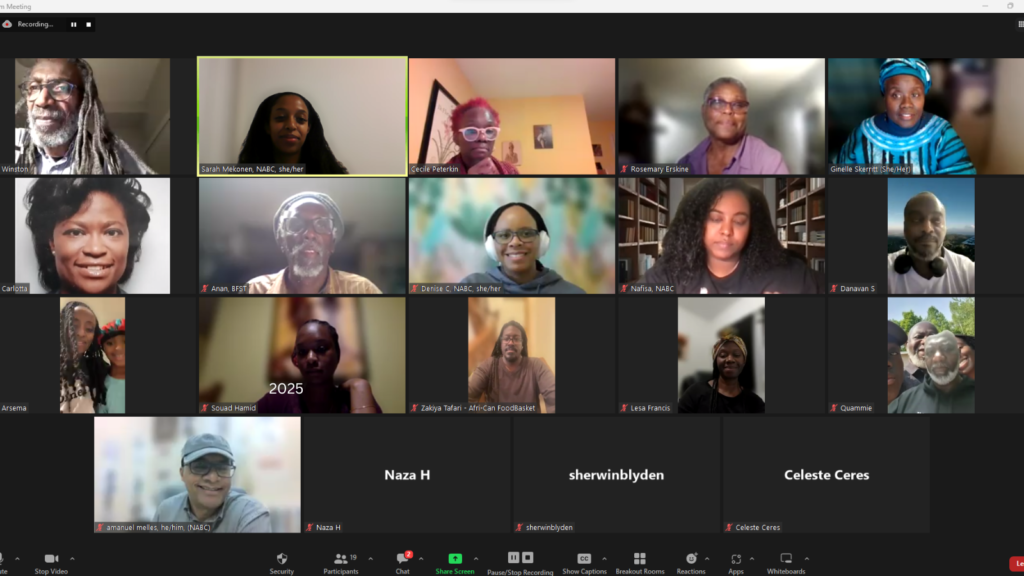
NABC has been deeply engaged with the Black Food Sovereignty Working Group since its inception, hosting roundtables and emphasizing the need for a critical dialogue to enhance community understanding of food sovereignty among Black communities. In 2021, the Working Group secured funding from the Metcalf Foundation, prompting further collaboration with NABC. The Black Food Sovereignty Working Group contracted NABC to develop a three-year strategic plan. The plan, finalized in 2023, focuses on Alliance-building, promoting self-determination, addressing racism, and empowering the community.
CURRENT INITIATIVES WITH BFSA
NABC is currently embarking on a new phase with the Black Food Sovereignty Alliance (BFSA) by supporting its incubation, growth, and development as a new entity. NABC’s Incubator Program is designed to provide the conditions for emerging non-profit organizations to create sustainable growth and measurable impact in Black communities.
CONTACT
For more information, please reach out to Rosemary Erskine at [email protected], Director, Organizational and System Capacity.

NABC’s Approach: To address the generational and systemic challenges Black communities face, NABC adopts a Black Ecosystem Approach (BEA). The BEA recognizes that solutions are beyond the purview of one or few stakeholders and require an intentional shift towards collaborative solutions. This means bringing together all segments of Black communities, including the private sector, faith groups, community groups, and allies in mainstream society, governments, and philanthropic sectors.
Shifting the Ecosystem: NABC has identified several shifts in the ecosystem including shifting funding and evaluation relationships between B3s/nonprofits and funders from transactional to transformational.
Purpose: At its core, NABC’s work to transform funding, and evaluation is about building the sector’s capacity and shifting our (i.e., B3s/nonprofits and funders) mindset to move funding and evaluation relationships from transactional to transformational.
NABC’S KEY EFFORTS TO TRANSFORM FUNDING AND EVALUATION:
Pilot Test: NABC co-designed and implemented a new approach to building evaluation capacity of B3s/nonprofits that is culturally and contextually responsive to the realities of B3s/nonprofits and communities they served. This also tested two hypotheses:
- Can evaluation capacity building that is culturally and contextually responsive to the realities and evaluation perspectives of B3s/nonprofits and the communities they serve be an alternative model to the traditional evaluation capacity building approach?
- Can such model be effective in building B3s/nonprofits evaluation capacity and shift mindsets in the way evaluation is used in the context of funding relationships?
Convening: NABC convened B3s, Black evaluation practitioners and scholars to discuss and reflect on Black perspectives on evaluation and the role culturally responsive evaluation plays in field building and transforming funding and evaluation relationship between B3s/nonprofits and funders.
Foundational Conversation Series: NABC co-designed and implemented a half day learning and reflection event in collaboration with three funders. The series offered B3/nonprofit, funders, and evaluation practitioners to reflect on the nature of funding and evaluation relationships and the role they play in maintaining and transforming these relationships.
KEY LESSONS LEARNED:
Lesson 1 – The Need to Press a Reset Button and Humanize Evaluation: In the context of funding and evaluation relationships between B3s/nonprofits and funders, we need to have honest conversations on:
- The real purpose of evaluation
- Why is evaluation important
- How we use evaluation findings
- Who benefits from evaluation?
Lesson 2 – Understanding the Accountability and Learning Dimension of Evaluation: In the context of funding and evaluation relationship, the purpose of evaluation is to 1) facilitate program improvement 2) generate and deepen knowledge 3) ensure accountability to stakeholders 4) inform decision-making. This helps to ensure that there is balance between accountability and learning and between proving and improving.
Lesson 3 – Understanding Evaluation as a Continuous Learning Process for Stakeholders

Lesson 4 – The Need to Develop a Shared Understanding of Performance Measurement, Evaluation, Evaluation Mindset, Evaluation Know-How

Lesson 5 – Understanding the Nature of Transactional & Transformational Funding & Evaluation Relationships

CONTACT
For more information, please reach out by emailing Yonatan Ghebray at [email protected], Associate Executive Director.
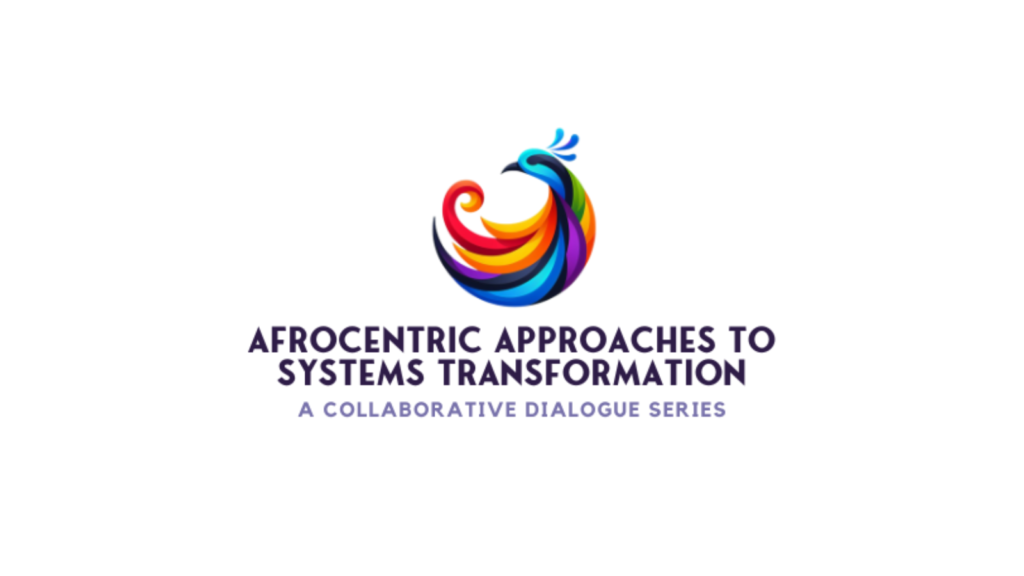
Long-standing systemic challenges confronting people of African descent cannot be addressed unless we tackle the underlying root causes. As we seek solutions to the systemic and generational challenges, it is critical to understand that the solutions lie beyond the ability of individuals and single organizations. It requires collaborative approaches involving diverse stakeholders, harnessing collective knowledge, experience and wisdom to find solutions to our toughest challenges.
It is in this spirit that NABC (Network for the Advancement of Black Communities), CS Innovations and the Center for the Advancement of Non-Racialism and Democracy (CANRAD) and the Ontario Trillium Foundation (OTF) have co-developed, designed, and implemented a collaborative dialogues series that provided a platform for knowledge exchange and learning between African and Canadian B3 (Black-led, Black-focused, Black serving) organizations.
The dialogue series explored what systems transformation looks like through an Afrocentric lens particularly when embedding African values and principles, learning from case studies, stories and practice from the African continent, and presented opportunities for joint learning, collaboration, and partnership. A virtual 3-part dialogue sessions with African and Canadian B3 organizations addressed topics under key thematic areas that contribute to advancing systems transformation, laying a foundation for future collaboratives and partnerships.
OVERALL OBJECTIVES
To present a platform for African and Canadian B3 organizations that promotes knowledge exchange through a compelling dialogue series that leads to learning, reflecting, and acting.The dialogue series served as a foundational platform to:
- Encourage learning about social transformation and change approaches, methodologies, lessons from the past, and application in today’s context
- Develop an Action Agenda to advance knowledge & capacity towards approaches to Systems Transformation through an African lens
- Share knowledge by producing written documentation on the themes addressed
- Plant seeds for future perspectives by ensuring the dialogues are designed and implemented as a platform to generate future potential collaborative initiatives
SHORT-TERM OUTCOMES
- Provide a knowledge exchange and learning platform for African and Canadian B3 organizations
- Enhance understanding and capacity of B3 organizations for systems transformation embedded in Afrocentric perspectives
- Knowledge production, transfer, and mobilization
LONG-TERM OUTCOMES
- Identify promising/best systems transformation practices that embed Afrocentric approaches from the continent and diaspora and profile/showcase them in various platforms.
- Strengthen the support and investment for promising/best systems transformation practices and outcomes and promote/expand core learnings stemming from the dialogue series
- Institutionalize Afrocentric system transformation approaches and practices through collaborative efforts.
The 3-part dialogue series was organized around three themes, each focusing on different elements critical to system transformation:
- 30th April 2024 – “Unpacking Leadership Approaches Necessary for Systems Transformation: Afrocentric Perspectives, Lessons, and Practice”
- 12th June 2024 – “Youth of African Descent for Systems Transformation: Recognizing Youth Agency as Key to Transformation”
- 24th July 2024 – “Moving Towards Transformational Funding Partnerships: Evaluating the Relationships Between Funders and Non-Profits
Beyond the Trees Podcast
To deepen the conversations sparked through the dialogue series, Beyond the Trees brings together African and Canadian thought leaders to reflect on Afrocentric approaches to systems transformation.
This podcast weaves together personal stories, scholarly insights, and practical strategies for reimagining the systems that shape our lives.
Listen on Spotify: Beyond the Trees
CONTACT
For more information, please reach out by emailing Allan Boesak at [email protected], Director, Youth, African Diaspora and Continental Engagement.
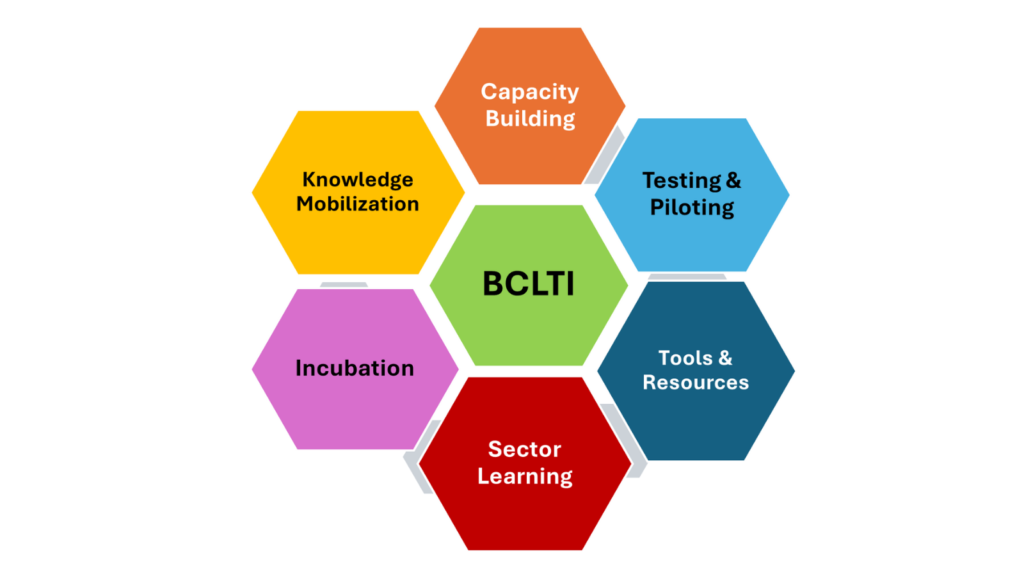
Context: Long-standing systemic challenges confronting Black Communities cannot be addressed unless we tackle the underlying causes. To address the long-standing systemic challenges confronting Black communities, NABC has been using a Black Ecosystem Approach (BEA) recognizing the solutions to our deeper challenges are beyond the purview of one or a few stakeholders and requires an intentional shift towards collaborative solutions. NABC continues to draw from the collective wisdom of all segments of Black communities, including the private sector, faith groups, community groups, allies in mainstream society, governments and philanthropic sectors to advance its work.
Shifting the Ecosystem: NABC identified several ecosystem shifts, including the following:

The Black Canadian Learning and Transformation Institute (BCLTI) serves as a pillar of adaptive and organizational capacity building, systems transformation, and a space to seed, grow, and sustain innovative adaptive and organizational capacity building approaches. The BCLTI contributes towards shifting the ecosystem by strengthening the sector’s capacity and co-creating enabling conditions for systems transformation.
The Black Canadian Learning and Transformation Institute (BCLTI) At-A-Glance
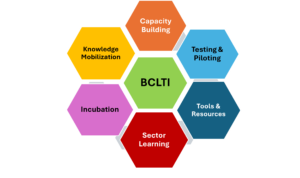
CONTACT
For more information, please reach out by emailing Yonatan Ghebray at [email protected], Associate Executive Director.
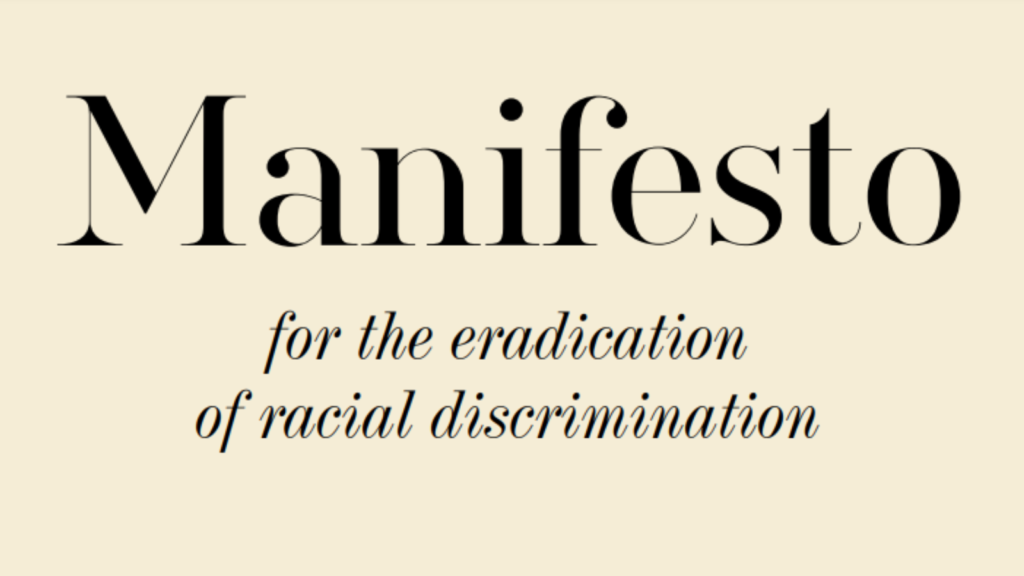
The Manifesto for the eradication of racial discrimination (Halifax Declaration) calls for urgent recognition of the historical and ongoing injustices faced by African descent communities, urging action to address the deep-rooted racial discrimination they endure. The Declaration survey was made possible through the support of the Black Opportunity Fund, the Network for the Advancement of Black Communities, and Argyle PR. The validation survey and analysis was done by NABC.
Access the full report in English: Manifesto Report
Access the full report in French: Manifesto Report FR
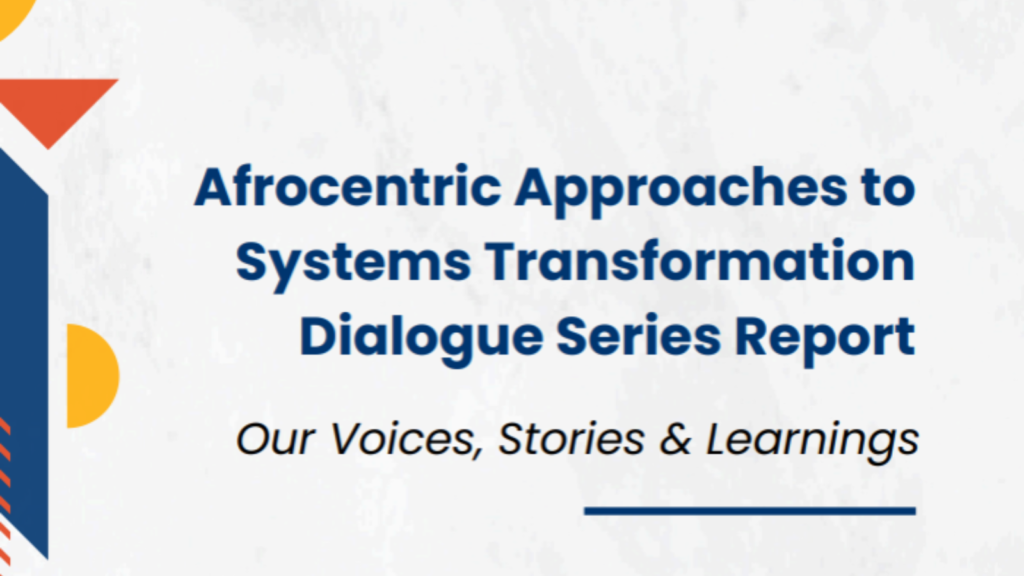
This joint report on the Afrocentric Collaborative Dialogue Series highlights knowledge exchange between African diaspora and Canadian B3 organizations, exploring how African values can drive system transformation and address systemic challenges. The report is the result of an initiative of NABC, CS Innovations and CANRAD at the Nelson Mandela University in South Africa, supported by the Ontario Trillium Foundation.
Access the full report here: Afrocentric Approaches to Systems Transformation Dialogue Series
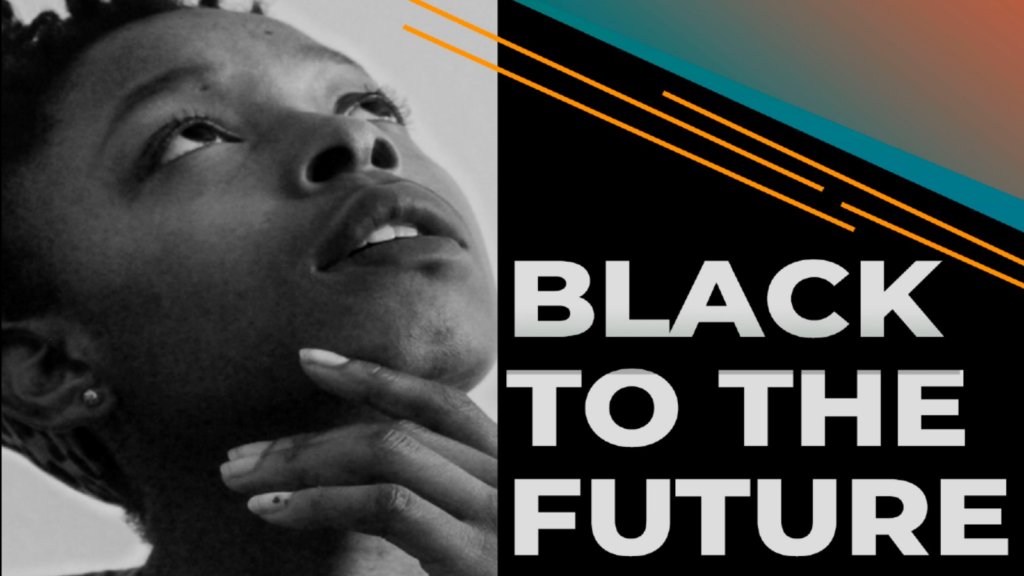
This joint report with CEE Centre for Young Black Professionals outlines the emergency support needs of vulnerable Black communities and partner organizations, detailing the immediate and ongoing impacts of COVID-19 in Ontario. This report led to significant multi-million dollars investments in Black communities by the City of Toronto, the Province of Ontario, the United Way of Greater Toronto and other funders to alleviate the impact of Covid-19 in our communities.
Access the full report here: COVID-19-EMERGENCY-AID-REPORT

This joint Carleton University, FFBC and NABC research report provides the first in-depth examination of the relationship between Canadian Philanthropy and Black communities. Our research and analysis suggest that the Canadian philanthropic sector has failed to support the urgent and specific needs of Black communities in Canada. This research report was the basis for the Black community’s public policy and government relations collective effort that led to the establishment of the $200 million endowment fund currently administered by FFBC.
Access the full report here: Unfunded Report

Black-led, Black-focused, and Black-serving (B3) organizations, groups, and networks have not fared well before the pandemic hit, in terms of access to funding and capacity building supports. The pandemic exacerbated the challenges they faced to the extent that many of them struggled to adequately support the Black communities they served. NABC continues to advocate for B3s in the recovery phase and post-pandemic reality for long-term investment to strengthen their capacity to recover from the pandemic and thrive post-pandemic.
NABC believes building the evaluation capacity of Black-led, Black-focused, and Black-serving (B3) organizations is critical to their recovery and resilience post-pandemic. B3s need sustained support to build their capacity to evaluate their work; use evaluation data to learn from their work; and improve results for Black communities they serve. Lessons from the field of capacity building indicates that organizations that are adept at learning and adapting to new challenges are more likely to remain viable. Thus, NABC and its partners believe building the evaluation capacity of B3s will also contribute towards strengthening the Black communities Sector.
The Evaluation Capacity Building (ECB) Pilot is testing an approach to evaluation capacity building that is different from traditional capacity building by providing contextualized, customized, comprehensive and continuous evaluation learning and support. NABC is implementing the pilot in collaboration with B3s and Black evaluation practitioners. The implementation consists of assessing needs, co-designing and customizing ECB support, tracking progress, and documenting lessons learned. Participants are engaged in a phased implementation process where they have access to learning resources, technical assistance, coaching, convening, and peer learning.
The primary outcome of the pilot is the learning that emerges for all stakeholders involved from testing the approach for building evaluation capacity. Participants will gain a deeper appreciation of the purpose of program evaluation in the context of their individual work. Additionally, we hope to promote Afrocentric perspectives in evaluative thinking and practice; create data and evaluation friendly spaces that strengthen evaluation culture and evidence-based practice and decision making in the Black communities sector.
To learn more about the pilot, please contact our Associate Executive Director, Yonatan Ghebray.

We are at crossroads when it comes to evaluation, its purpose, and how it is used. Before the pandemic and into the recovery phase, evaluation has been largely used to artificially enforce “accountability” and maintain a transactional relationship between funders and non-profit organizations. Demand for “accountability”; expectation to do more with less; and reporting on impacts are phrases that keep leaders of non-profits, including B3s awake at night. These phrases are particularly disempowering in an environment of transactional relationship between funders and non-profits. You might ask, what does this have to do with evaluation? Everything!
Let’s think and reflect deeply on these phrases: Demand for accountability – who is demanding accountability and whose interest is fulfilled by meeting that accountability? Expectation to do more with less – who is expecting or promising to do more with less? Reporting on impacts – who is defining impact and/or how is impact defined and understood?
Evaluation is neither neutral nor objective and in a transactional relationship between funders and non-profit organizations, its sole purpose becomes keeping the transactional relationship in place. Whether evaluation is conducted by less trained community practitioners or well-trained professionals from academic institutions or consulting firms, it doesn’t produce the desired results (true accountability and learning) in an environment of transactional relationship between funders and non-profits.
As we move into the recovery phase from the pandemic and beyond, investing in evaluation capacity building is not going to be enough. Collectively, we need to think and reflect deeply about: 1) Accountability – who is demanding accountability and whose interest are we fulfilling by meeting accountability? 2) Expectation to do more with less – who is expecting non-profits to do more with less or why are non-profits promising to do more with less? 3) Reporting on impacts – are funders defining impact and/or non-profits accepting impacts funders defined for them and the communities they served? How do funders and non-profits understand impact and does their understanding align with the communities served? Evaluation done in an environment of transformational relationship between funders and non-profits, where there is a shared understanding accountability, expectation, and impact becomes an empowering tool for involved stakeholders, including the communities served.
Non-profits, including B3 organizations, and funders are important players and are critical in meeting urgent needs and improving the living conditions of communities they serve. However, the demands for accountability and impact reporting, government and
other funders expect require significant investments in building evaluation capacity of non-profits, including B3 organizations in data and evaluation to meet community accountability, learning needs, and tell true impact stories. More importantly, the relationship between funders and non-profits needs to shift from transactional to transformational, where there is a shared understanding of accountability, expectation, and impact.
The use of data and evaluation is critical only in an environment of transformational relationship, where the voices of all stakeholders, including the communities served are heard and used to draw lessons learned and impacts obtained. Again, whether evaluation is conducted by less trained community practitioners or well-trained professionals, its purpose should be to improve work done on behalf of and with communities; generate and deepen knowledge; ensure accountability to stakeholders (particularly communities served); and make informed decisions.
As we move into recovery from the pandemic and beyond, our collective challenge is going to be the extent to which we are able and committed to shift our collective mindset to cultivate transformational relationship and do and use evaluation in the context of a transformational relationship. In a transformational funding relationship, non-profits, regardless of their size and reach, use data generated from their work (through informal and formal evaluation) to demonstrate the impact of their work on the communities they serve. In a transformational funding relationship, funders are willing to learn with non-profits they partner with from data generated from the work on the ground and the impact generated. In a transformational relationship, data and evaluation become means for non-profits and funders to learn together; and meet accountability to communities served.
We invite your perspectives and feedback regarding evaluation. Please contact Yonatan Ghebray, Senior Director, Evaluation, Learning and Quality Improvement.

What are Networks
Most of us in the non-profit sector think of networks as groups of people or organizations working towards a common goal: prison reform, educational justice, food sovereignty, housing or equitable health care, to name a few. Often, we envision networks as a series of ‘dots and lines.’ And at the most basic level that is accurate. Yet, behind the dots and lines are people with specific functions to truly make a network transformational. As June Holley contends, most successful networks have four carefully crafted interlocking aspects that support and complement one another: an intentional network, relationship network, action network, and support network. When all four parts coalesce, the overall network can truly be transformative. Change in communities happen through the involvement of individual leaders, grassroots, small and large organizations, and networks. The Network for the Advancement of Black Communities (NABC) is a network, and you can visit our website to learn about the various ways our network engages to strengthen the Black ecosystem.
The Network Mapping Working Group
The COVID-19 pandemic has exposed in numerous ways that the Black ecosystem lacks a sustainable digital infrastructure that would enable B3 non-profit groups and organizations to collaborate and self-organize easily across Canada.
In February 2023, NABC (Network for the Advancement of Black Communities) will spearhead the launch of a new Network Mapping Working Group (NMWG). The main goal will be to create a digital map that shows existing relationships and connections between various stakeholders within the NABC network. Over the course of three months, NMWG participants will gain skill sets to help them better harness the strengths of the Black ecosystem. Participants will (a) learn how to create effective mapping surveys (b) will develop greater literacy in reading network maps (c) expand their understanding of network weaving practices and (d) the importance of network thinking for B3 organizations.
By implementing the NMWG, we hope to create a space that fosters the social connectivity and collective impact of B3 agencies. NABC envisions a strong and sustainable Black community sector, and by forming intentional networks and taking a networked approach we can drive positive outcomes for Black communities. Please contact our Director of Network Weaving and Communication, Denise Challenger, to join the NMWG where we will explore digital mapping, network weaving, and network leadership within the context of Black Canada.

Last week, the Network for the Advancement of Black Communities (NABC) welcomed Black community housing leaders from across Canada for a retreat on Wasan Island to ignite discussions that speak to the evolution of Black community housing. Historically, systemic racism and discriminatory practices have created significant barriers to safe, affordable, and equitable housing for Black people. Addressing this requires intentional engagements and collaborative solutions. The retreat created a safe and caring space for leaders, advocates, and experts in Black community housing to convene, share experiences, and understand how their individual work connects to the broader housing landscape. Attendees represented diverse perspectives and backgrounds united by a common goal of advancing Black community housing.
The retreat focused on three critical components for improving Black community housing. First, attendees co-developed best approaches for the implementation of a Black Community Housing Network (BCHN). The network intends to provide a unified platform for Black leaders in housing to share knowledge, best practices, and resources, resulting in more efficient and impactful initiatives, and create a space for collective advocacy, amplifying Black voices in policy discussions and decision-making processes. Second, they addressed the need for a National Black Community Housing Strategy (BCHS) that would specifically speak to the concerns of Black communities, appropriately inform relevant institutions and enable better decision-making. Attendees co-created potential components and considerations for a BCHS that will enable further consultations and engagements across the country. Third, attendees were informed and given the opportunity to exchange ideas about the establishment of a Black Community Technical Housing Resource Center that will aim to increase the organizational capacity of existing and upcoming Black community-driven housing projects and initiatives.
As the discussions and collaborations from this retreat continue to unfold, it is evident that a brighter housing future is on the horizon for Black people in Canada. Through the collective efforts of dedicated individuals and organizations, we are determined to make a lasting impact on Black community housing, creating a future where everyone has access to safe, affordable, and dignified housing. By cultivating a sense of collective responsibility and collaboration, NABC aims to foster lasting partnerships that will strengthen the housing sector and advance the interests of Black communities across the country.
The retreat underscored the significance of remembering the “Human” in “Human Resources” or “H” in “HR,” as explained by the retreat’s facilitator Allan Boesak, NABC’s Senior Coordinator for Strategic Initiatives. Boesak emphasized that despite our diverse approaches, we share the common goal of improving the wellbeing of Black communities. By embracing our shared humanity, we foster an environment of compassion and understanding, even in the face of adversity. Attendees acknowledged that meaningful change requires collaboration, partnership, and a deep understanding of our shared lived experience. By remembering the “H” in “HR” we strengthen our capacity to work collaboratively and emphasize the importance of centering compassion and empathy in every aspect of our work.
To learn more about these three housing initiatives, or if you have interest in being added to the Black Community Housing Network, please contact Allan Boesak.

The Government of Canada has initiated vital steps to combat systemic inequalities faced by Black communities, particularly within Canada’s criminal justice system. Minister of Justice and Attorney General of Canada, the Honourable Arif Virani, alongside Minister of Diversity, Inclusion, and Person with Disabilities, the Honourable Kamal Khera, has announced the launch of community and online engagement for the development of Canada’s Black Justice Strategy. This comprehensive strategy seeks to address anti-Black racism and systemic discrimination while reflecting the diverse experiences of Black communities. Twelve Black-led organizations across Canada, including the Network for the Advancement of Black Communities (NABC), will lead consultations based on the Framework for Canada’s Black Justice Strategy.
NABC is working with the following organizations to host our engagement sessions with their respected community members: TAIBU Community Health Centre, Urban Rez Solutions, Midaynta Community Services, and Black Studies Institute from the University of Windsor. Engagements are currently taking place until September 29, 2023. An online survey is available for those unable to attend sessions. NABC will submit a report based on the insights collected at the community engagement sessions. Our hope is that these recommendations will lead to concrete actions and help to create a more equitable and inclusive society for all Canadians.

Most non-profits, particularly black-led, black-focused, and black-serving organizations, groups, and networks (B3s) operate in precarious financial positions. Accessing funding and capacity-building supports to sustain their work is a challenge. Many are faced with capacity and system related barriers and increasing demands for accountability and expectation to demonstrate impact.
While Covid-19 has impacted the non-profit sector, B3s felt the brunt of its impact. Before Covid-19 hit, many B3s were reeling from the shrinking pool of funding opportunities and struggling to find funders to support the important work they do in their communities. Even with good ideas that aim to address real communities’ needs, many find it difficult to compete with mainstream nonprofits due to a lack of staffing capacity to prepare strong funding applications. Funding requirements associated with granting processes also pose insurmountable barriers. This prevents them from successfully competing for access to funding, capacity-building supports, and other resources to advance their mission.
When Covid 19 hit, it exacerbated preexisting challenges and barriers B3s faced, and severely hampered their ability to sustain their work and serve their communities. The challenges and barriers in the grantmaking environment put many B3s at a great disadvantage. Even when NABC and its allies worked with B3s and advocated for removal of some of the barriers in the granting process (e.g., Covid – 19 emergency response funding) the challenges remained.
NABC recognizes that these challenges and barriers are systemic in nature and require system level intervention. NABC continues to work with B3s and its allies to advocate and work for system-level change (e.g., Strengthening B3s, Advocating for Core Funding, Systems Change, and Promote Smart Grantmaking). These efforts are critical and require long-term and continuous commitment to help transform the funding environment. At the same time, building the capacity of B3s is a critical part of transforming the funding environment. Here are some grounding perspectives B3s need to think about when seeking and writing grants.
- When applying for grants, it is critical to understand the funder’s key priorities and goals, before investing precious time and energy into the grant writing process. Alignment of the grant idea, the organization’s mission, and the funder’s goals is important for the funding partnership to start on a strong footing.
- For a funding partnership to be effective, the relationship must shift from transactional to transformational. B3s and funders must first come together to understand community needs, assets, and collectively propose solutions to address the need. Then, decide how much funding/resources will be needed to implement proposed solutions.
- Regardless of size and history, B3s are a means to an end. While the means is equally important, the primary focus of seeking funding should be to meet the needs of communities served. It is important to guard against mission-drift and chasing funding. Mission-directed work is more likely to lead to successful and effective funding partnerships and transformative relationships.
- When applying for grants, think about sustainability and demonstrate that the work is mission-directed and will continue beyond the funding relationship. Systemic challenges in grantmaking prevent B3s from long-term planning. Regardless, it is still important for B3s to have an orientation of sustainability that goes beyond dollars and cents.
- Reporting can be an opportunity for B3s to meet accountability and learning requirements to internal and external stakeholders. Funders require financial reporting to know how funding is being used and B3s must have and follow their own financial management policies/procedures for internal and external accountability requirements. Managing finances properly and transparently; and assessing the impact of funding (telling the evaluation story) are critical aspects of reporting.
- Developing a culture of learning and reflection allows B3s to get critical feedback about what works; what doesn’t work, for whom and why; and what they need to do to improve their work. This is critical in shifting relationships with funders and contributes to transformational change in funding partnerships and relationships.
- Learning that emerges from the work of B3s should be understood as a measure of accountability. When B3s are partnering with funders to propose solutions to address needs, they are testing assumptions/theories to see what works and how it can be scaled up. When a proposed solution fails, important lessons are learned. It is through ongoing reflective practice that lessons learned can be applied and best practices are generated.
- Grant writing is an art and a science. It is about telling a compelling story based on evidence and logic.
For more information on grant seeking and writing, please contact our Senior Director of Evaluation, Learning and Quality Improvement, Yonatan Ghebray.
© 2018 Network for the
Advancement of
Black Communities.
All Rights Reserved.
